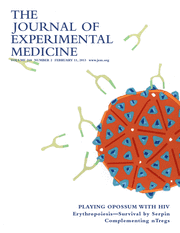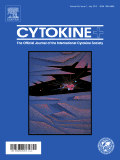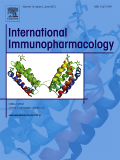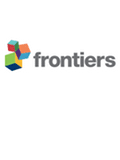
Journal of Inflammation Research
Scope & Guideline
Connecting Researchers to Transform Inflammation Studies
Introduction
Aims and Scopes
- Mechanisms of Inflammation:
Research articles frequently explore the cellular and molecular mechanisms underlying inflammation, including the roles of various signaling pathways, cytokines, and immune cells. - Clinical Applications and Biomarkers:
The journal emphasizes the identification and validation of inflammatory biomarkers for disease prediction, diagnosis, and treatment response, particularly in chronic diseases and conditions such as cancer, autoimmune diseases, and metabolic disorders. - Therapeutic Strategies:
Studies often present novel therapeutic approaches targeting inflammation, including pharmacological interventions, traditional medicine, and lifestyle modifications, aimed at mitigating inflammatory responses. - Translational Research:
The journal publishes translational research bridging laboratory findings with clinical applications, highlighting the relevance of basic science in understanding disease processes and developing treatment strategies. - Systemic and Local Inflammation:
Research covers both systemic inflammation and localized inflammatory responses, examining their implications in various conditions such as cardiovascular diseases, neurodegenerative disorders, and infectious diseases.
Trending and Emerging
- Inflammasome Research:
There is an increasing focus on the role of inflammasomes in various diseases, particularly in understanding how they contribute to chronic inflammation and their potential as therapeutic targets. - Microbiome and Inflammation:
Studies exploring the relationship between gut microbiota and systemic inflammation are gaining traction, emphasizing the microbiome's role in modulating immune responses and its implications in health and disease. - Machine Learning and Artificial Intelligence in Inflammation Research:
The integration of machine learning and AI in analyzing inflammatory biomarkers and predicting disease outcomes is emerging as a significant trend, enhancing the precision of research findings. - Pyroptosis in Inflammatory Diseases:
Research on pyroptosis, a form of programmed cell death associated with inflammation, is expanding, with implications for understanding its role in various inflammatory conditions and potential therapeutic strategies. - Nutritional Inflammation Indices:
The development and application of nutritional inflammation indices are on the rise, highlighting the interplay between diet, inflammation, and chronic disease outcomes.
Declining or Waning
- Traditional Medicine Approaches:
Research on traditional medicine approaches for managing inflammation appears to be waning, possibly as a result of a growing emphasis on evidence-based pharmacological treatments or novel therapeutic modalities. - Basic Science without Clinical Relevance:
There is a noticeable decrease in purely basic science studies that do not link inflammatory mechanisms to clinical outcomes, reflecting a trend towards more clinically applicable research. - Single-Agent Inflammatory Treatments:
The focus on single-agent therapies for inflammation management has diminished, with a shift towards combination therapies or multidisciplinary approaches that consider the complexity of inflammatory diseases.
Similar Journals

Nature Cardiovascular Research
Transforming research into impactful cardiovascular solutions.Nature Cardiovascular Research, published by SpringerNature in Germany, stands as a premier journal dedicated to advancing the field of cardiovascular sciences. With an impressive 2023 categorization in the Q1 quartile across multiple disciplines—including Biochemistry, Genetics and Molecular Biology, Cardiology, and Medicine—this journal uniquely positions itself as a leading resource for pioneering research and innovative findings. Although currently not open access, it provides a rich repository of peer-reviewed articles that contribute directly to the evolving landscape of cardiovascular medicine. The journal aims to bridge the knowledge gap between basic science and clinical application, catering to researchers, healthcare professionals, and students alike who are immersed in the complexities of cardiovascular health. With robust Scopus rankings in key categories, Nature Cardiovascular Research is poised to shape future directions in the field, helping to foster a deeper understanding of cardiovascular diseases and their underlying mechanisms. Explore the latest research and be part of the conversation in one of the most impactful scientific domains.

JOURNAL OF EXPERIMENTAL MEDICINE
Leading the Charge in Biomedical InnovationJOURNAL OF EXPERIMENTAL MEDICINE, published by Rockefeller University Press, is a renowned peer-reviewed journal dedicated to advancing the field of experimental medicine since its inception in 1896. With an impressive impact factor and categorized in the Q1 quartile for Immunology, Immunology and Allergy, and Miscellaneous Medicine, this journal stands at the forefront of medical research and innovation. It provides a prestigious platform for scholars and practitioners to disseminate groundbreaking findings that drive the understanding of disease mechanisms and therapeutic strategies. While the journal is not open access, it maintains high visibility and engagement within the scientific community, fostering collaboration among researchers, professionals, and students alike. The journal's consistent ranking in the top percentiles of Scopus illustrates its significant impact and commitment to excellence in medical research.

Journal of Inflammation-London
Exploring the Complexities of Inflammation in DiseaseJournal of Inflammation-London, published by BMC, is a premier open access journal dedicated to advancing the understanding of inflammation, a critical process underlying numerous diseases including autoimmune disorders, cancer, and cardiovascular conditions. With its inception in 2004, the journal has consistently delivered high-quality research that bridges basic science and clinical applications, maintaining a significant place in the academic community. It holds impressive rankings within the Q2 category for both Cell Biology and Clinical Biochemistry, reflecting its impactful contributions to these fields, where it ranks in the 73rd and 64th percentiles respectively. The journal is committed to open access principles, ensuring that all published articles are freely available to researchers, practitioners, and the global community, thereby fostering collaboration and innovation. Located in the United Kingdom, the journal continues to attract submissions from prominent researchers and institutions worldwide, solidifying its status as an essential resource for the latest developments in inflammation research.

CYTOKINE
Shaping the future of cytokine science with impactful research.CYTOKINE is a prestigious peer-reviewed journal published by Academic Press Ltd - Elsevier Science Ltd, dedicated to advancing the field of immunology, biochemistry, and related biomedical sciences since its inception in 1989. With an ISSN of 1043-4666 and an E-ISSN of 1096-0023, this journal serves as a vital resource for researchers and professionals alike, offering cutting-edge research findings that delve into the roles and mechanisms of cytokines in health and disease. Recognized for its impactful contributions, CYTOKINE currently ranks in the Q2 quartile across several categories, including Biochemistry, Hematology, and Immunology, indicating its significant influence in these fields. Despite not offering open access, the journal maintains a high-quality standard, as evidenced by its robust Scopus rankings, including a notable 80th percentile in Medicine and Hematology. Researchers and students are encouraged to explore the latest findings and methodologies via CYTOKINE, as it continues to shape the future landscape of cytokine research and application.

FASEB JOURNAL
Empowering Research Through Interdisciplinary InsightsFASEB JOURNAL, published by Wiley, stands as a leading interdisciplinary platform in the realm of biological sciences, prominently featured in the United States. With an impressive 2023 impact factor placing it in the Q1 category across various fields including Biochemistry, Biotechnology, Genetics, Molecular Biology, and Medicine (miscellaneous), the journal is recognized for its substantial contribution to advancing knowledge and innovation. It serves as a vital resource for researchers, professionals, and students alike, providing high-quality, peer-reviewed articles that explore the molecular and cellular mechanisms underlying health and disease. The FASEB JOURNAL not only emphasizes accessible scientific communication but also fosters collaboration within these dynamic fields, making it an essential publication for anyone engaged in cutting-edge life sciences research. To explore more about the journal's offerings and access its vast repository of scholarly articles, visit their official page.

International Immunopharmacology
Connecting Researchers to the Future of Immune System ScienceInternational Immunopharmacology, published by Elsevier, stands as a prominent journal within the disciplines of immunology and pharmacology. With an ISSN of 1567-5769 and an E-ISSN of 1878-1705, this esteemed journal is based in the Netherlands and features a robust commitment to disseminating high-quality research from its inception in 2001 through 2024. The journal has achieved impressive rankings, securing a Q1 category in Pharmacology and Q2 in both Immunology and Immunology and Allergy as of 2023. With its strategic focus on bridging the gap between immunology and pharmacological applications, International Immunopharmacology attracts a diverse readership, including researchers, healthcare professionals, and students interested in the latest advancements in therapeutic agents and immune system modulation. Furthermore, it offers an open access option, enhancing the accessibility and reach of its invaluable content. As a pivotal resource in the field, this journal not only facilitates the exchange of innovative ideas but also fosters a deeper understanding of the complexities of immunopharmacology in today’s research landscape.

Immunotherapy Advances
Fostering collaboration and discovery in the world of immunology.Immunotherapy Advances, published by Oxford University Press, stands at the forefront of the rapidly evolving field of immunology and microbe interactions, focusing specifically on novel immunotherapeutic strategies and their clinical applications. Established in 2021, this peer-reviewed journal aims to disseminate high-quality research that contributes to the understanding and advancement of immunotherapeutic techniques, potentially transforming patient care in immunology. With a current Scopus rank of #140 out of 236 in the realm of Immunology, placing it in the 40th percentile, Immunotherapy Advances is positioned to be an integral resource for researchers, healthcare professionals, and students eager to stay updated with groundbreaking findings and methodologies. The journal is dedicated to fostering innovative discussions and collaborations, ensuring open access to vital research that influences treatment paradigms globally.

INFLAMMATION RESEARCH
Unraveling the complexities of immune responses.INFLAMMATION RESEARCH, published by SPRINGER BASEL AG, serves as a pivotal journal in the fields of Immunology and Pharmacology, with notable rankings of Q2 in Immunology and Q1 in Pharmacology as of 2023. With an ISSN of 1023-3830 and an E-ISSN of 1420-908X, this esteemed journal, located in Basel, Switzerland, has been at the forefront of advancing our understanding of inflammatory processes since its inception in 1995. Covering research trends and breakthroughs until 2024, it significantly contributes to both the theoretical frameworks and practical applications within its discipline, boasting a strong Scopus ranking of #40/313 in Pharmacology and #56/236 in Immunology, placing it in the top percentiles for its field. Although it does not offer Open Access options, the journal remains an invaluable resource for researchers, professionals, and students committed to unraveling the complexities of inflammation and its implications in health and disease.

Frontiers in Immunology
Pioneering Research at the Intersection of Immunology and InnovationFrontiers in Immunology is a leading open-access journal published by FRONTIERS MEDIA SA since 2010, dedicated to advancing knowledge in the field of immunology. With an impressive Q1 ranking in both Immunology and Allergy as of 2023, this journal exemplifies excellence in research dissemination, positioning itself among the top 22% of relevant literature in the discipline. The journal, based in Switzerland, emphasizes its commitment to open science by ensuring all published research is freely accessible, fostering collaboration and innovation among researchers, professionals, and students alike. With substantial visibility demonstrated by its ranks within the Scopus database—ranked #52 out of 233 in Immunology and Allergy, and #58 out of 236 in Immunology and Microbiology—Frontiers in Immunology serves as a vital platform for cutting-edge research. Researchers are invited to contribute original investigations and reviews that expand the understanding of immune mechanisms, therapeutic advancements, and clinical applications, making it a cornerstone for those looking to push the boundaries of immunological science.

Bosnian Journal of Basic Medical Sciences
Pioneering Discoveries in Basic Medical SciencesThe Bosnian Journal of Basic Medical Sciences, an esteemed publication within the field of medicine, serves as a pivotal platform for disseminating high-quality research and innovative findings since its inception in 2003. Published by the Association of Basic Medical Science Federation of Bosnia and Herzegovina, this open-access journal makes substantial contributions to the medical sciences, fostering collaboration and knowledge sharing among researchers, healthcare professionals, and students alike. With a distinguished Q2 ranking in Medicine (Miscellaneous) for 2023 and a remarkable 91st percentile Scopus rank in General Medicine, the journal emphasizes its commitment to excellence and relevance in contemporary medical research. It operates out of Sarajevo, Bosnia and Herzegovina, continuing to attract diverse contributions from a global audience and solidifying its role in advancing basic medical science. The journal's broad scope, covering innovative and diverse medical topics, promotes interdisciplinary approaches that are essential in addressing today's health challenges.